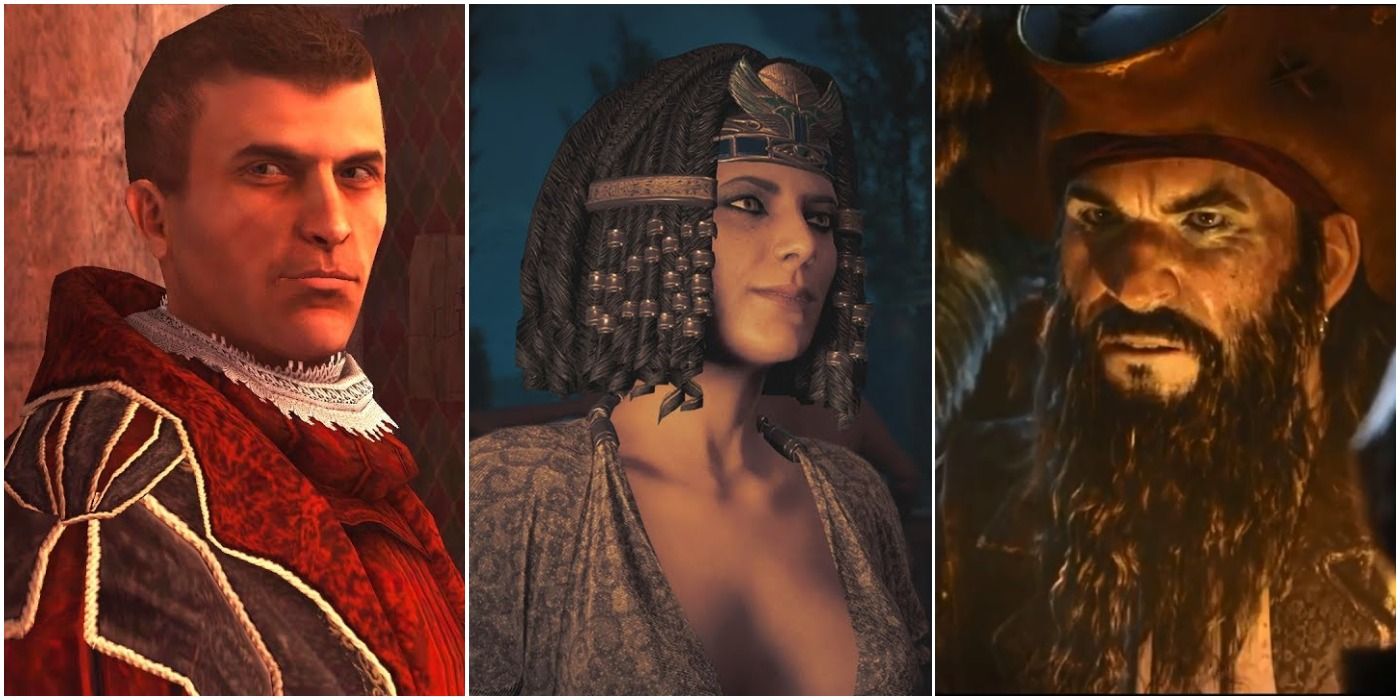
The Assassin's Creed franchise has certainly had a mixed journey when it comes to characters. These stealth adventure games craft some of the most beautifully realized recreations of past societies one could imagine. Unfortunately, the people who populate these sprawling environments aren't as engaging.
RELATED: Assassin’s Creed: 5 Key Things That Need To Stay In The Games (& 5 That Should Change)
Characters in the series tend to come off as bland, existing only to serve the protagonist and the story while having little personality of their own. This particularly hurts famous figures that players encounter, many of whom aren't nearly as interesting as history makes them out. Sometimes, though, the developers succeed in their translation, portraying these icons in intriguing ways without sacrificing their authenticity.
10 Leonardo da Vinci
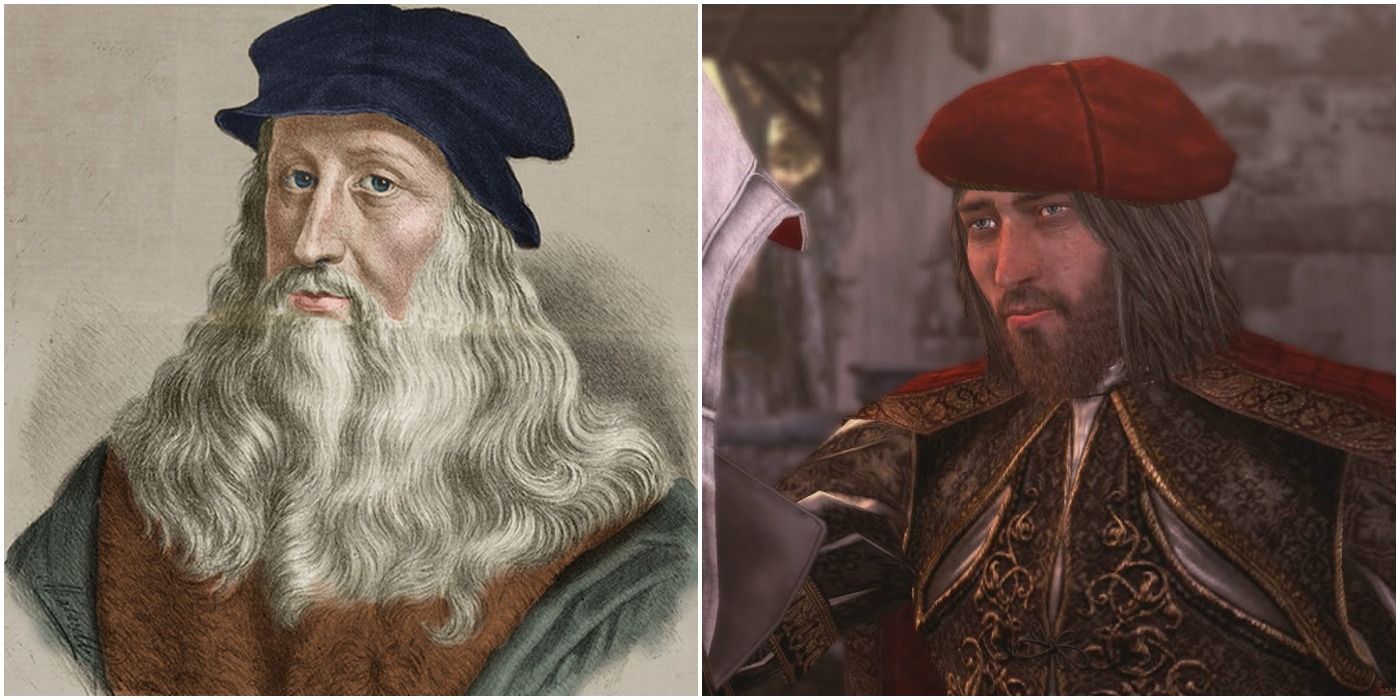
The Renaissance period is easily a series highpoint due to the radically improved gameplay and storytelling. Instrumental in this is the famous genius, Leonard da Vinci. To date, he's among the most developed historical figures in the series. He and Ezio both have chips on their shoulders and a passion to prove themselves, and this fuels their friendship through Assassin's Creed II and Brotherhood.
The developers also incorporate several of his unfinished inventions into full-fledged gadgets for the Assassin to use. Sure, some of these are one-offs gimmicks, but they nevertheless illustrate da Vinci's immense talent for innovation.
9 Caterina Sforza
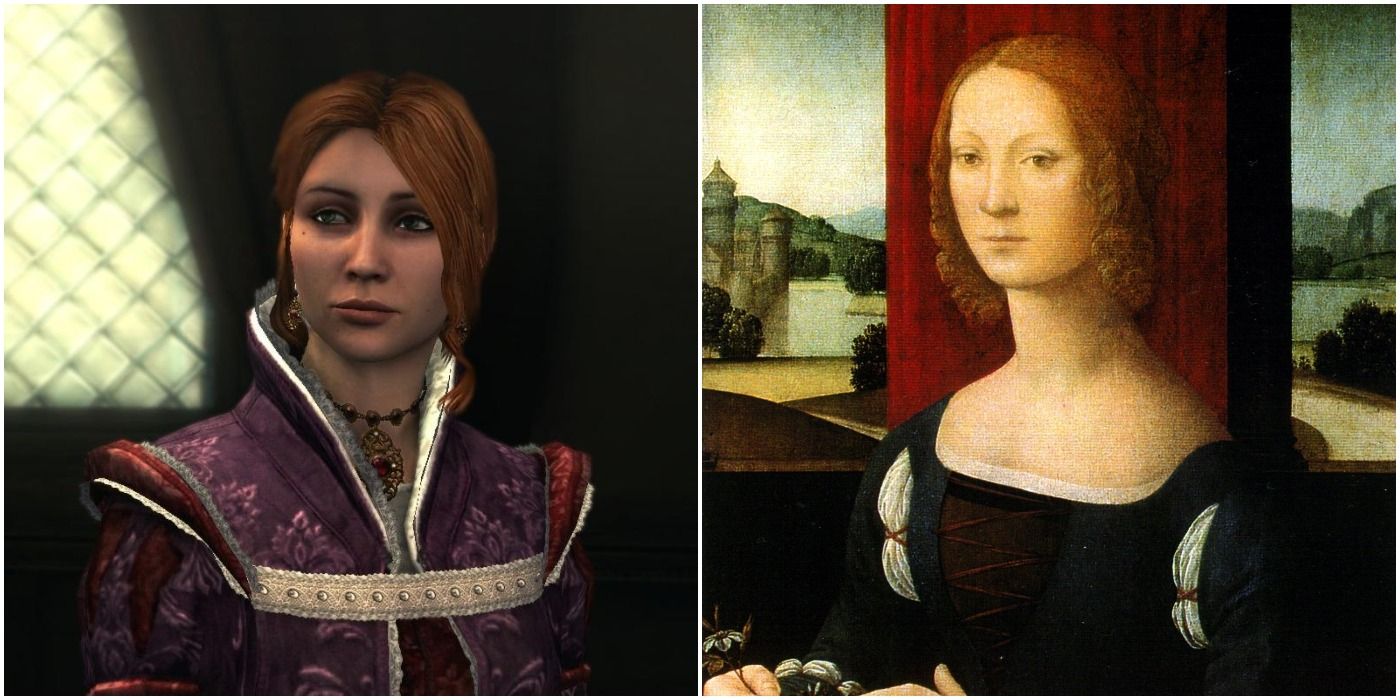
A recurring figure in Ezio's adventures, Caterina Sforza is certainly a firebrand. She's exceedingly confident and takes no grief from anyone. Even when she's surrounded by enemies, she still speaks her mind and then some. What does she do when her castle is surrounded? Flash the invaders from the ramparts!
That may sound like gross embellishment, but it's not as fictionalized as you might think. Caterina was an authoritative woman in her time, often taking stately matters into her own hands whenever her husbands were away (or dead). This, combined with her vulgarity, earned her the nickname "Tigress." That's an apt description for her in-game counterpart.
8 Mary Read
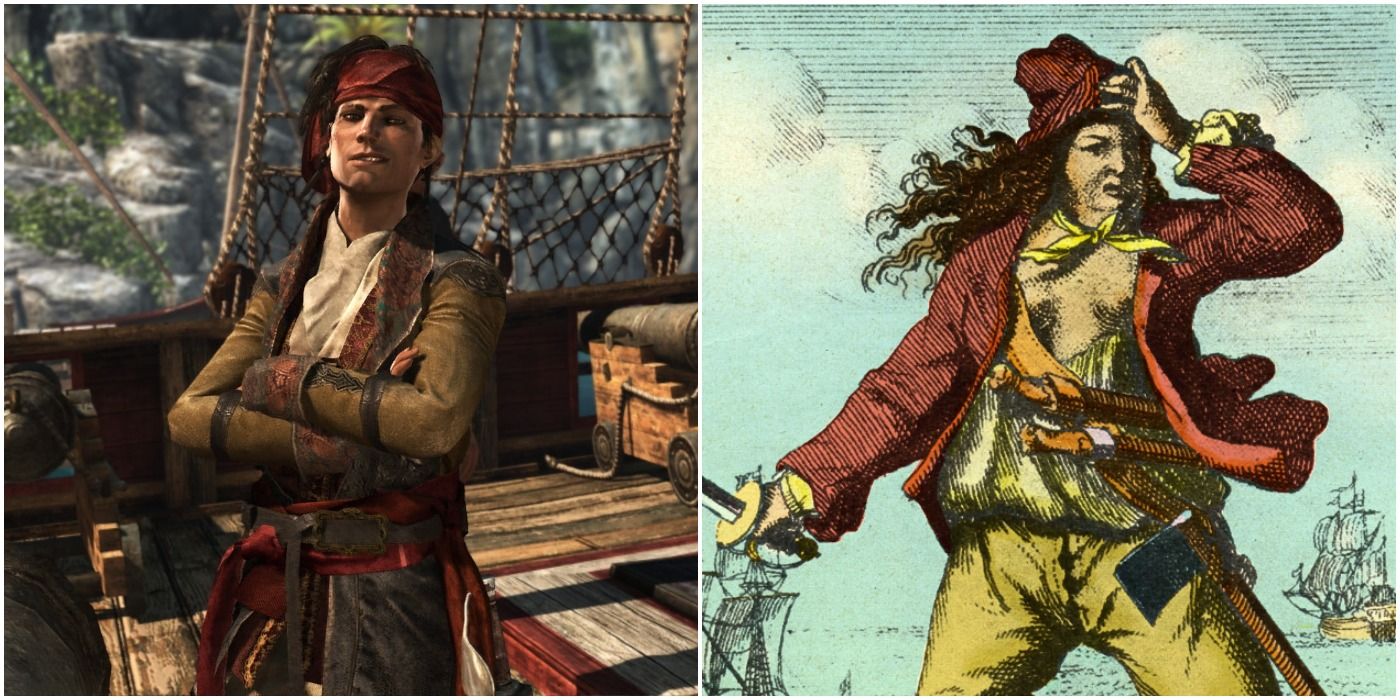
This cunning lass was one of the few females to make a name for themselves in the Golden Age of Pirates. Disguised as a man, Read's abrasive, no-nonsense attitude and maritime experience made her more formidable than the average scallywag, and that definitely shows in Assassin's Creed IV: Black Flag.
RELATED: 10 Assassin's Creed Games With The Best Storylines
Throughout her adventures with Edward Kenway, she comes off as an old-hat sailor, someone who knows her way around the sea and can navigate the merciless pirate hierarchy through sheer grit. Making her an Assassin further shows her uncompromising ingenuity and killer instinct, albeit while reeking of desperation.
7 Socrates
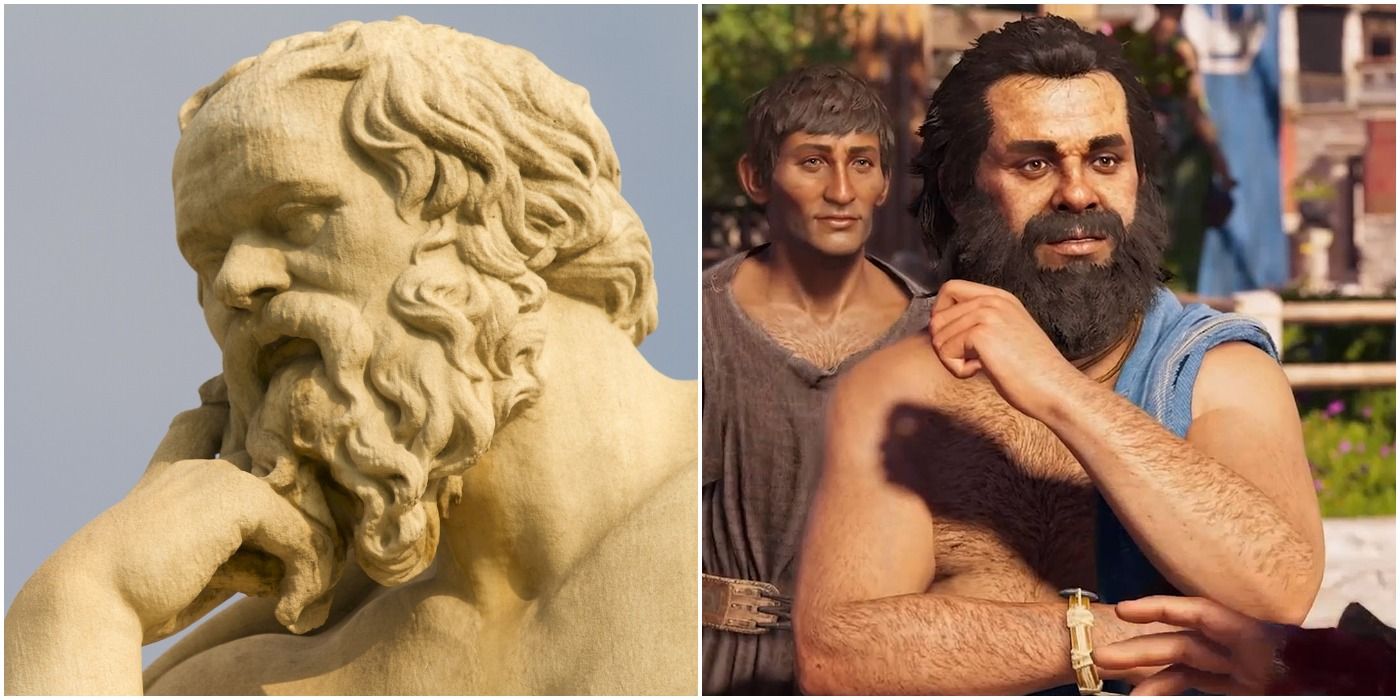
As one of the world's great philosophers, Socrates was obviously set to appear in Assassin's Creed: Odyssey. It was unclear how a non-combative character would translate into an action-based game, but the title's RPG approach helps with this.
Right away, this guy establishes himself as a thinking man, disillusioned with the narrow views of his peers. He comes with a fountain of knowledge and perspective, and players can engage with him for however long they see fit. For instance, they can join in a debate between him and Thrasymachus, discussing the nature of leadership and one's own preconceptions of it. It's not as in-depth as it could have been, but it's still food for thought.
6 Cleopatra
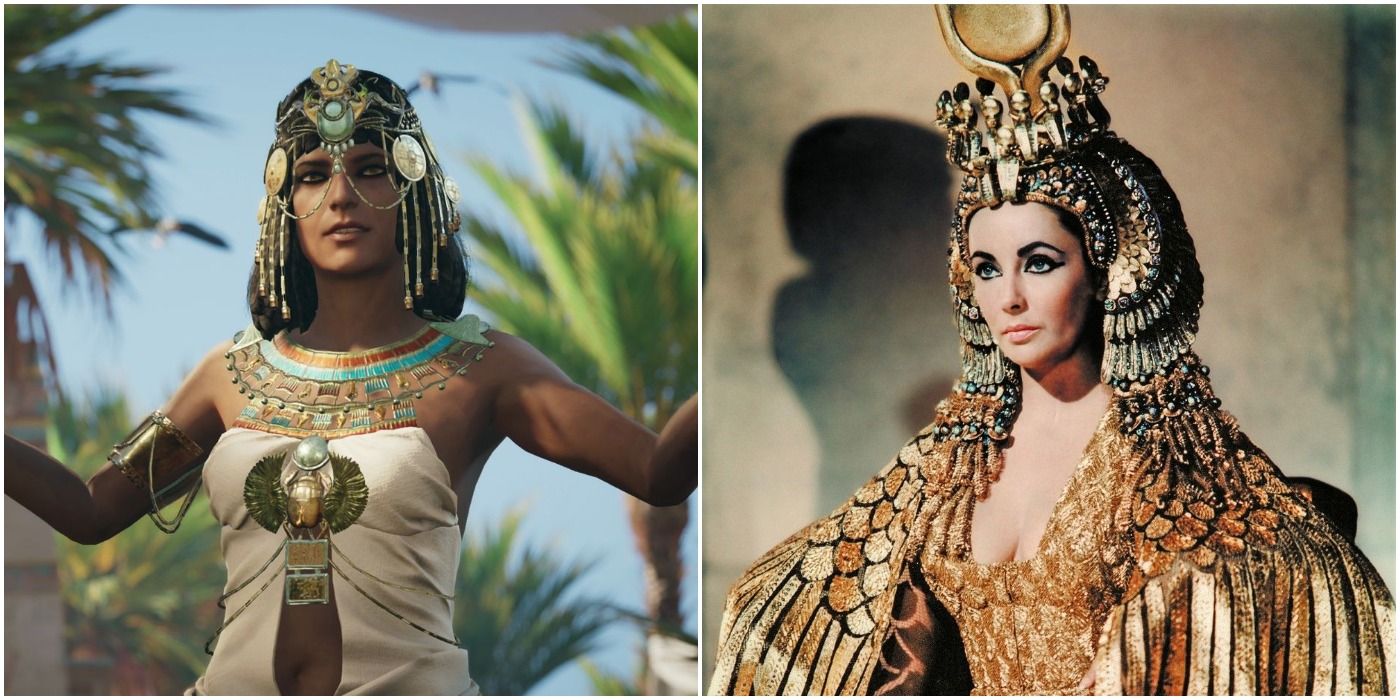
Aside from her straight-shooting personality and occasional brutality, one thing that stood out about Cleopatra was her magnetic quality. She seemed to have an uncanny allure that not only enraptured some of the most powerful people in the world but also inspired legions of followers to flock to her.
This tracks with her appearance in Assassin's Creed: Origins. She commands the screen, and every exchange carries a hint of danger. Her responses are short and to-the-point, conveying the decisiveness that one would expect in a strong ruler without raising her voice. Assuming you can look past her excessive promiscuity, it's easy to see why characters and players alike do her bidding.
5 Benjamin Franklin
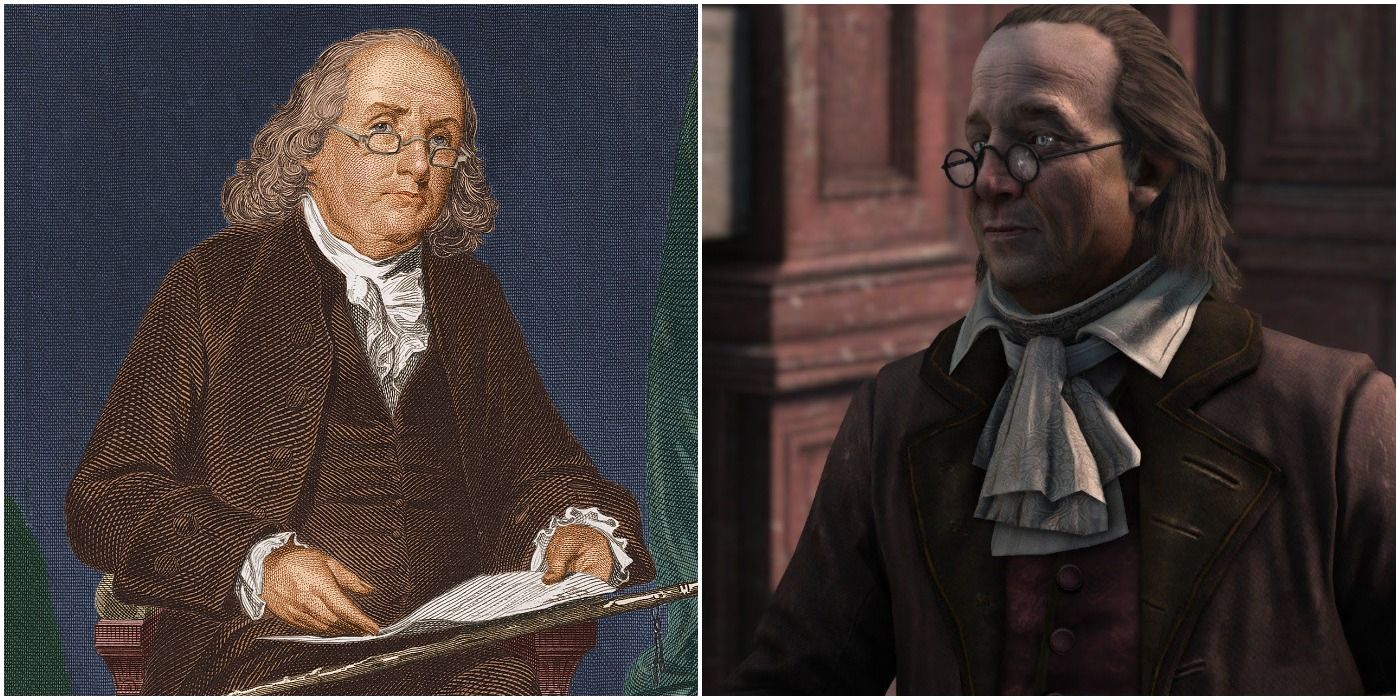
It went without saying that Assassin's Creed III--with its Revolutionary setting--would include America's Founding Fathers. Ben Franklin is no exception, as he tasks players with collecting pages of Poor Richard's Almanack. It feels somewhat obligatory, yet it still offers a serviceable gameplay nod to his career as a writer.
However, Franklin's additional appearances in Assassin's Creed: Rogue and Unity show something else. He wasn't just an author or inventor and witnessing his duties as an ambassador to France demonstrate that. His presence in all three games paints him as an active figure in several facets of worldly affairs. He was truly a man of many occupations, and you feel that during his time in the series, especially when you see his enthusiasm for each of his exploits.
4 Julius Caesar
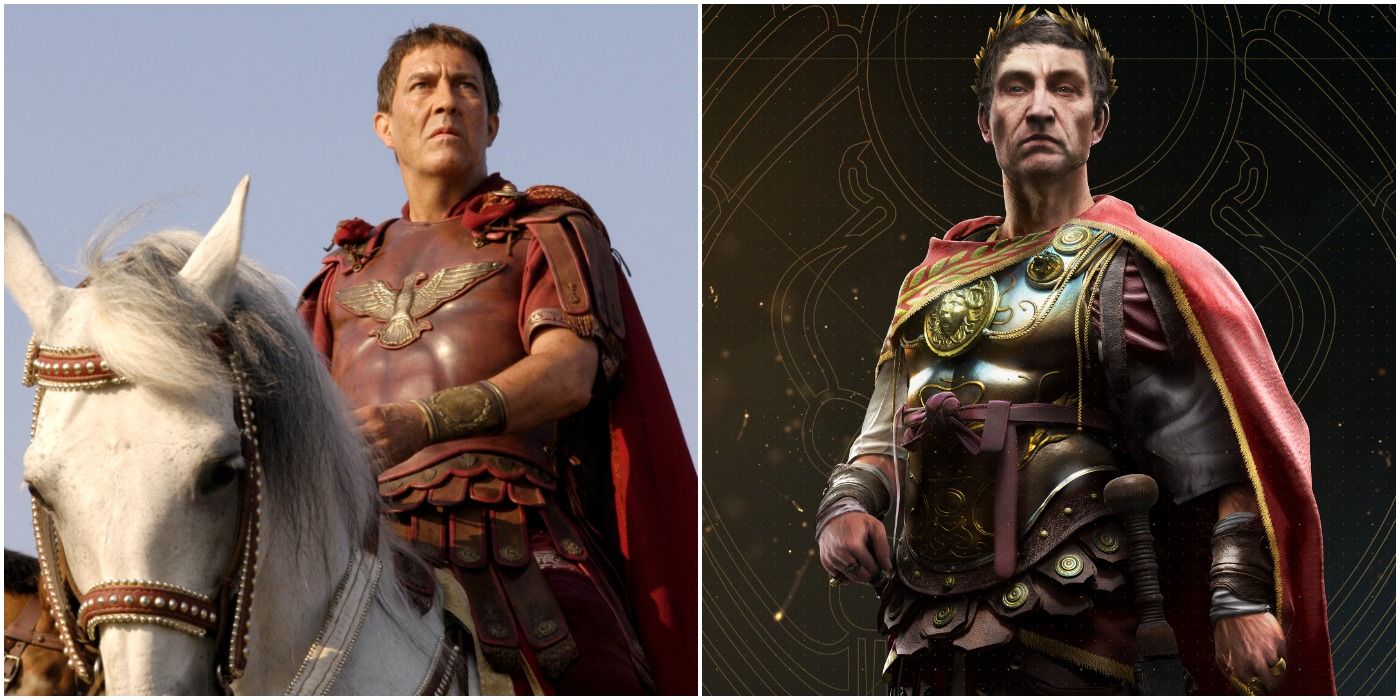
This Roman ruler was simultaneously popular and controversial for many reasons. He had the charisma and skill of a great commander, often leading arduous campaigns himself and emerging victorious. He was also a radical reformer, uprooting the Roman Republic and turning it into an empire in the supposed interest of the common people.
Amidst all the Egyptian splendor, you see that drive in Origins. Caesar searches for the most surefire way to win and gladly relies on anyone whom he deems most useful. It doesn't matter if these choices meet with convention or not. This extends to his military exploits. He's shown getting down and dirty in battle, likely earning the respect of his men in the process. At the same time, his attitude carries that familiar sense of danger, as he doesn't believe he's beholden to anyone. All of this plants seeds of the tyrant that he'll be labeled as.
3 Niccolò Machiavelli
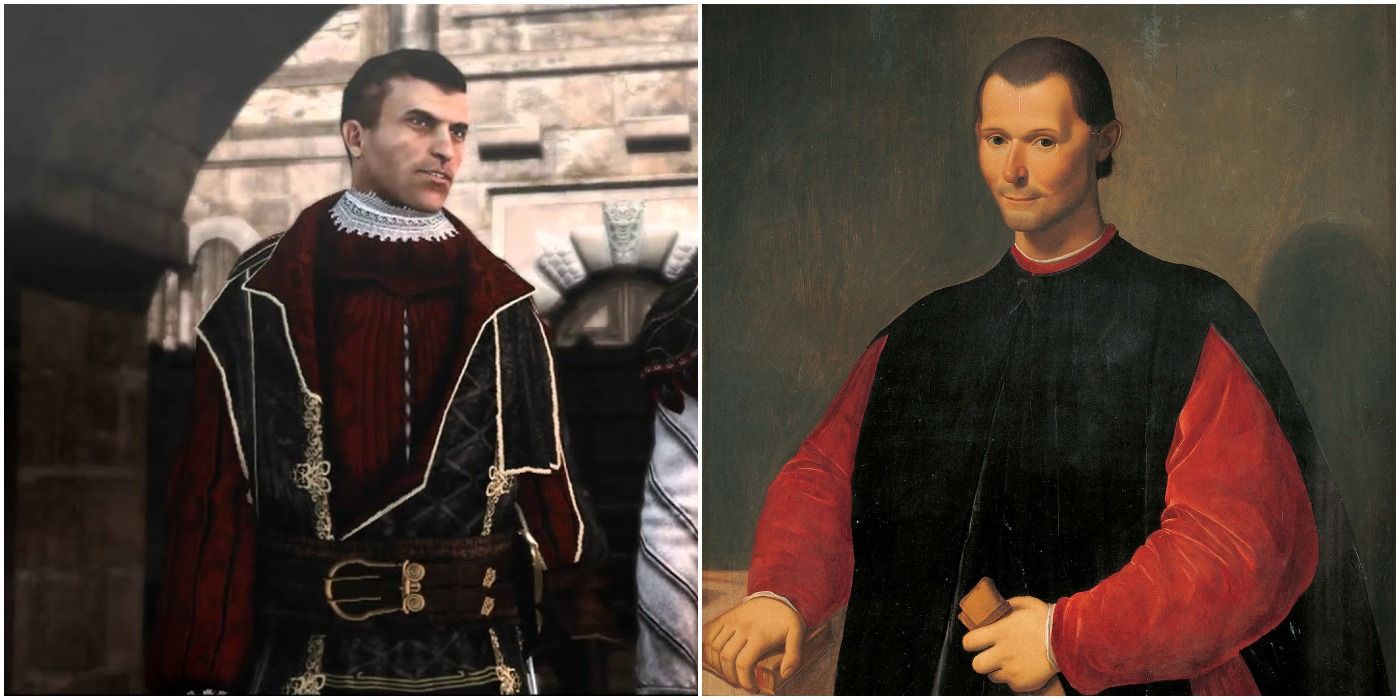
People often describe great, meticulous schemers as "Machiavellian." They see all of the angles, manipulating people and situations to suit their agendas. That is just the kind of man who would lead the Assassins during the Renaissance.
RELATED: Assassin's Creed: 10 Things You Didn't Know About The Assassins
A pivotal player in Brotherhood, Machiavelli is as cold and calculating as you'd expect. His true intentions are rarely obvious, so much so that other characters sometimes question his loyalty. He always aims for what he thinks is the most beneficial outcome for society, and Ezio regularly acts as a tool for that. Not only gives purpose to many of the missions but also shows the deviousness and practicality of the man in charge.
2 Alfred The Great
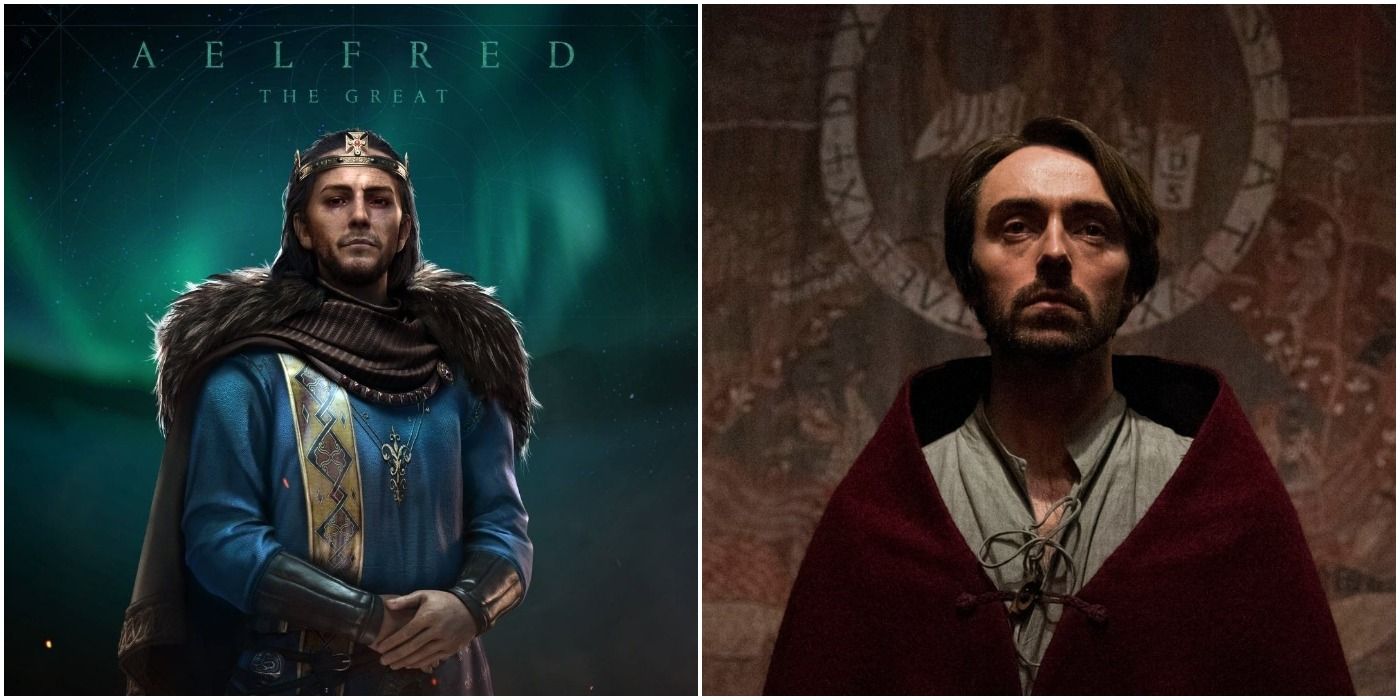
Rarely do you get a monarch as important as Alfred. Without this Wessex, his country would have fallen to the Vikings. He rallied his scattered people, fortified the land against further attacks, and instituted tremendous improvements to education and religion. All of this was to unite the various regions into one kingdom of England.
While he initially appears to be a mustache-twirling villain, the Alfred in Assassin's Creed: Valhalla remains a pious and forward-thinking figure. He's someone who plays the long game. You know what his ultimate goal is, but it's always ambiguous as to how he plans to reach it. The smartest one in the room is often the most interesting. That remains so here. His biggest weakness is that he's not quite as interesting as his counterparts in Vikings and The Last Kingdom.
1 Blackbeard
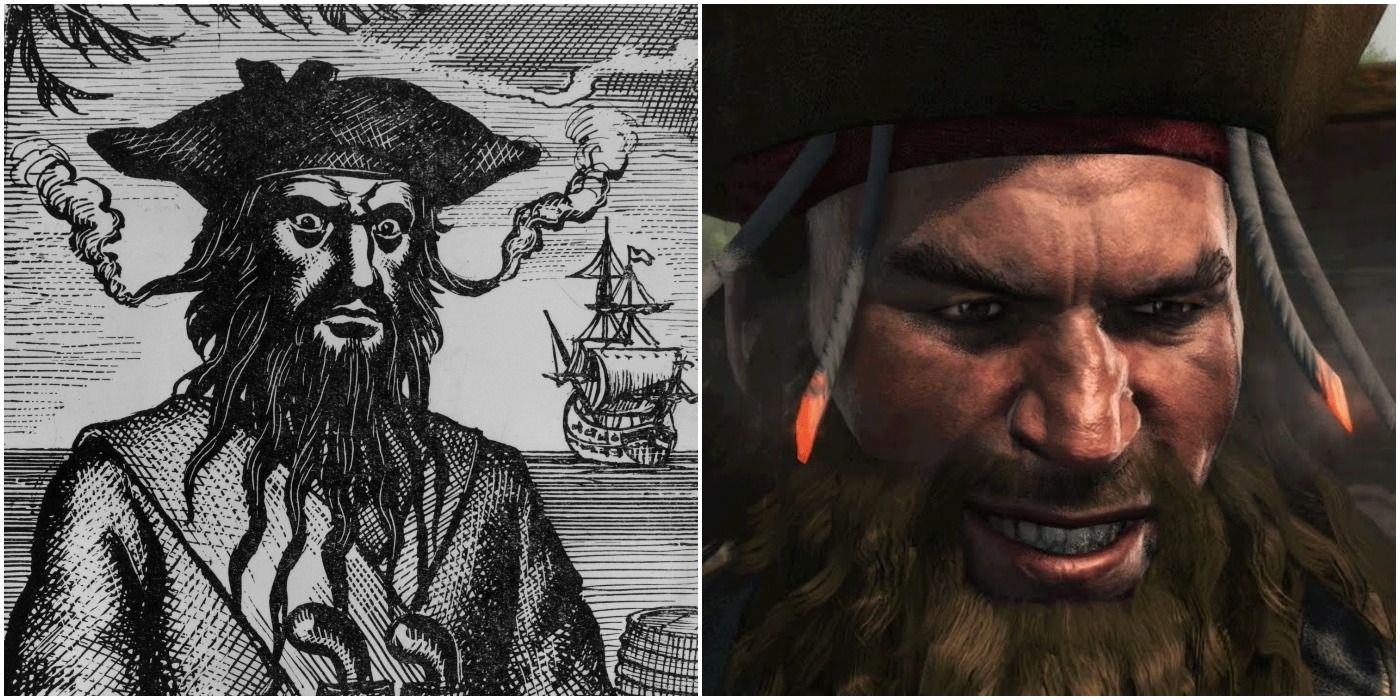
He's history's most notorious pirate. Even those who know nothing about the time period have heard of Blackbeard. His exploits were legendary, and he was a feared figure across the sea. Black Flag definitely delivers on that larger-than-life quality. Edward Thatch is an imposing presence whenever he's onscreen. He has a slightly unhinged quality to him, using his demented demeanor to scare enemies into submission.
Like da Vinci, though, he gets far more development than most historical icons due to his close friendship with protagonist Edward Kenway. He comes to believe in the pirate way of life, rising as an active leader in maintaining it and growing fiercely loyal to his allies along the way. This makes him of the most fully drawn interpretations of Blackbeard to date. Considering how many versions of this hairy hell-spawn have emerged over the years, that's no small feat.
NEXT: Assassin’s Creed: 5 Unseen Historical Figures Who Need To Appear In Game

